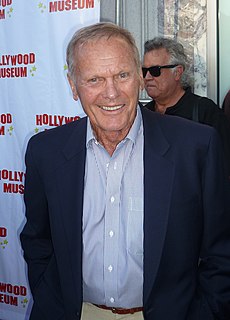A Quote by Christopher Guest
In the kind of films that I do, there is an extremely limited number of people that can improvise. The reason the ensemble continues in the movies is because those are the people that can do that kind of work. It's not just an accident those people are in the film.
Related Quotes
We were film geeks. We devoured everything: really obscure art films, foreign films. We were the kind of guys that lived at the Cinematheque. But at the end of the day, your favorite movies are like everybody else's favorite movies. Because those are the movies that become a touch point where you can connect to other people.
Our films tremendously influence people. But at the same time, no one goes to the cinema to listen to lectures, so if you have an interesting story, and if you can showcase it as a film, and its messages are good, then it's like an icing on the cake: it shall be a superhit. And if I get those kind of films, I'll definitely want to work on it.
When critics or people judge, I think it's harder to make a commercial, pop movie than it is to make a pretentious art film. It's harder to reach millions of people and satisfy them and make them happy. These films kind of get ghettoized, this genre because there are so many big, big movies that are such big hits, but aren't any good. The audiences, they're not judging the style of the director, or the execution of the film. They're just looking to be entertained. They want to escape from their reality, and that's why we make movies, to get people to escape from the realities.
I've been in a few movies that really have the tendency to polarize people, and I kind of like that. I kind of like anything that pushes people's buttons. People will always take things as they want, and project stuff on it - it's just kind of what people do. Whether it's violence or teen pregnancy, whatever.
I like to do realistic films as well as sensible humourous subjects, just because I think these films are only capable to attract people to the theatres. Though I agree that serious movies are also good and I like to watch them, it is a fact that majority of the people are hesitant to go to theatres for those films.
I don't pretend to be a general or an admiral or anything else, but I just - every time I see - I see President [Barack] Obama get up, "Ladies and gentleman, we are sending 50 people to Iraq," 50.So that's bad in two ways. Number one, it's such a low number that the enemy's saying is that all?And number two, when you think 50, those people now have a target on their back. They wanna find those 50 people and they look for those 50 people.
For me, two of my favourite science fiction films are Blade Runner, which is fantastic, and Terry Gilliam's Twelve Monkeys. Both of those were smart science fiction films hitting more of a medium budget, and I desperately hope there is an audience for that kind of film because I would love that to be my next film, on that kind of scale.
Once in a while a good opportunity would come along, like the first 'Playhouse 90 ever to air - working in television afforded me my best opportunities. The (film) industry was going through such turmoil at the time - studios didn't know where to go anymore, they were falling apart, television was there. They didn't know what kind of films people wanted. The European films were making a huge impact because those films wanted real people in real situations.
American movie audiences now just don’t seem to be very interested in any kind of ambiguity or any kind of real complexity of character or narrative - I’m talking in large numbers, there are always some, but enough to make hits out of movies that have those qualities. I think those qualities are now being seen on television and that people who want to see stories that have those kinds of qualities are watching television.
My favorite decade of cinema would be kind of the '40s, yeah. I like things in the '30s, but you know, the sound recording in the '30s wasn't very good. But for some reason the movies in the '40s have the best personalities: Jimmy Stewart, Gary Cooper, Betty Grable, Gene Tierney, and all those people. For some reason, I seem to gravitate more toward the '40s, and I don't necessarily know why. I just love the people.






































